Rating of the best remedies for heartburn in 2020

As statistics show, more than half of the country's adult population suffers from heartburn. Everyone can face this ailment: quick snacks in dry water, a plentiful feast or a hearty dinner eaten at night can provoke single attacks of this unpleasant malaise. However, ingrained bad habits, lack of diet can lead to various diseases of the gastrointestinal tract and make heartburn a constant companion of life, which will greatly reduce the quality of human life.
What is heartburn and what are the causes of it?
Heartburn, or, as gastroenterologists call it, gastroesophageal reflux, manifests itself in the form of discomfort or a burning sensation behind the breastbone, which rises from the epigastrium (epigastric region). A burning sensation in the esophagus is caused by irritation of its mucous membrane. Let's figure out how and why this burning sensation occurs. As you know, in the human stomach, the environment is normally acidic due to the produced hydrochloric acid. The acidity of the gastric juice is necessary for the normal digestion of food. In this case, the walls of the stomach have a special protective mechanism that protects them from the corrosive effects of acid. In the esophagus, the environment is close to neutral, and its walls cannot protect themselves from the aggressive action of gastric juice and other acidic effects. The stomach and esophagus are separated by a sphincter (circular muscle), which prevents digested food from entering the esophagus. In cases where the sphincter is weakened, the acidic contents of the stomach rises into the esophagus and begins to corrode its walls, thereby causing a burning sensation and pain behind the sternum.
In most cases, heartburn appears 15-30 minutes after eating, which causes considerable discomfort and, with frequent repetition, significantly reduces the quality of life. Consider the main causes of this ailment:
- diseases of the gastrointestinal tract.
Most often, a burning sensation in the stomach is only a manifestation of more serious diseases. Among them: gastroesophageal reflux disease (GERD), which is caused by insufficiency of the esophageal sphincter; gastritis (with high acidity); stomach ulcer; cholecystitis; cholelithiasis.
- improper nutrition.
A banal, but very common cause of heartburn. Lack of a regimen, overeating, quick snacks in dry water, fatty, spicy, fried foods, caffeinated drinks, baked goods - all this can cause a burning sensation in the stomach even in people who do not suffer from gastrointestinal diseases.
- taking medicines.
Some medications can cause a burning sensation.Most often these are non-steroidal anti-inflammatory drugs (ibuprofen, aspirin, naproxen, etc.), as well as antihypertensive drugs (captopril, enalapril, quinapril, indapamide, furosemide, valsartan, etc.).
- lack of a healthy lifestyle.
Bad habits, excess weight, as well as chronic stress can affect the digestive tract as a whole and manifest itself in the occurrence of reflux.
- pregnancy.
Most pregnant women suffer from heartburn, which occurs as a result of increased intra-abdominal pressure.
As you can see, the cause of heartburn can be both a hastily eaten bun and serious gastrointestinal diseases. Single and rare attacks of burning do not require referral to a specialist and disappear when changing diet and lifestyle, as well as with a single intake of express funds. When reflux becomes a constant companion of a person, and a burning sensation is felt after each meal, it is necessary to contact a gastroenterologist to identify its true cause. In this case, it may be a symptom of a more serious gastrointestinal problem and removing only unpleasant sensations will not be enough, complex treatment of the underlying disease is necessary.
Without going into the complexity of diagnostics and the subtleties of drug therapy available to specialists, we will consider the main types of drugs that help fight unpleasant manifestations of reflux.
Types of drugs for heartburn
As mentioned earlier, heartburn can be a consequence of a malnutrition, a symptom of a functional disorder of the gastrointestinal tract (gastritis, ulcer), or a more serious and extensive disease of the digestive system. Depending on the cause of the burning sensation, different drugs are prescribed with a different mechanism of action.
There are 5 types of drugs for reflux: antacids, alginates and gastroprotectors - with a mild form with a rare manifestation, antisecretory drugs and motility stimulants - with a severe form of reflux with frequent seizures.
More about each of them:
- Antacids.
They are used to eliminate rare manifestations of burning sensation as express remedies, as well as to relieve unpleasant symptoms of acid-dependent diseases (gastritis, ulcers, GERD).
There are two categories of antacids - absorbable and non-absorbable.
Preparations of the first category contain compounds of magnesium, calcium, sodium as active substances. Their action is to rapidly decrease the acidity of gastric juice by neutralizing the acid. Rennie, Vikalin, Vikair are examples of antacid absorbing agents. They act quickly, removing all unpleasant sensations, which won the trust of buyers. But with frequent use, they can cause nausea, headache, weakness.
Note that baking soda is also an absorbable antacid. Knowing this, many heartburn sufferers use it to eliminate the burning sensation. However, as practice shows, although soda gives temporary relief, it subsequently causes the so-called "acid ricochet", i.e. further provokes an even greater production of acid. Therefore, the use of baking soda in the fight against reflux is not recommended.
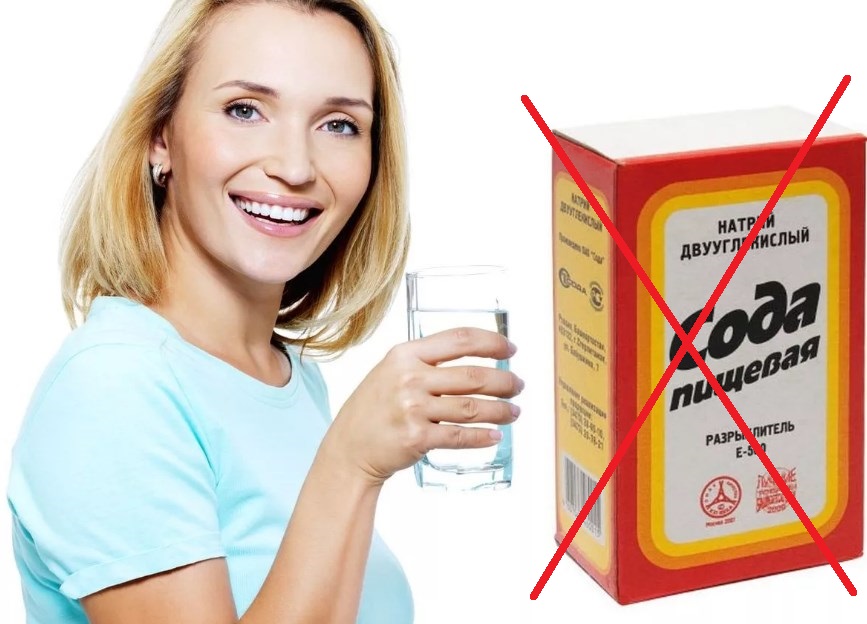
Non-absorbable antacids contain magnesium and aluminum compounds. They do not neutralize excess acid, but adsorb it. Their action is slower, but they give a longer lasting effect. Also, non-absorbable antacids are safer because do not enter the systemic circulation. Examples of such drugs are Maalox, Almagel, Gastal, Fosfalugel, Gastracid, Rutacid. Long-term or uncontrolled use of these drugs can cause diarrhea or, conversely, constipation.
- Alginates.
They are used for GERD, as well as heartburn, which is provoked by other causes, except for gastrointestinal diseases.
Alginates are high molecular weight polysaccharides that, when interacting with gastric juice, form a protective film on the walls of the stomach and esophagus. Thus, they protect them from the corrosive effects of hydrochloric acid and the occurrence of reflux.The main components of these funds are compounds of alginic acid with calcium and sodium. Alginates act rather quickly - relief comes in 5-7 minutes. There were practically no side effects. Examples are Gaviscon, Laminal.
- Gastroprotectors.
Drugs in this group are used for acid-dependent diseases of the stomach, functional disorders of the gastrointestinal tract. Their action is to restore the damaged gastric mucosa and protect it from the aggressive effects of hydrochloric acid and other damaging factors (excess food, poorly chewed food, alcohol, etc.). Allocate film-forming (Venter, De-Nol, Ulcavis, Escape), non-film-forming gastroprotectors (Biogastron), prostaglandins (Misoprostol). Each of the subspecies can cause their own side effects, including stool disturbance, increased blood pressure, allergies, and gastrointestinal disturbances.
- Antisecretory drugs.
They are used when antacids were ineffective, in a severe course of the disease, whose symptom was heartburn. Their action is to block the main mechanisms of gastric secretion and, as a consequence, reduce the amount of hydrochloric acid produced. There are 3 types of antisecretory agents: H2-histamine blockers (Ranitidine), proton pump inhibitors (Omeprazole, Emanera, Nolpaza, Pariet, etc.), M-anticholinergics (Gastrocepin). The most popular among doctors and the most effective are proton pump inhibitors. However, their use as well as other antisecretory drugs is not without side effects. Stool disorder, headache, weakness, itching, etc. are more common.
- Motility stimulants (prokinetics).
Prokinetics are agents that increase the activity of the stomach, accelerate the movement of intestinal contents through the digestive tract, and improve the functioning of the gastric sphincter. Thus, they speed up metabolism, improve muscle tone in the digestive tract, reduce reflux, and have an antiemetic effect. However, prokinetics are rarely prescribed to treat heartburn.
The best remedies for heartburn
We bring to your attention a rating of the best medicines for heartburn. When compiling it, the following criteria for medical devices were taken into account:
- type of drug (antacid, alginate, etc.);
- composition, and more specifically the main active ingredient;
- therapeutic properties - speed, duration of the provided therapeutic effect;
- mode of application;
- interaction with other drugs;
- the presence of contraindications;
- the possibility of use in certain categories of persons (pregnant women, children, diabetics, etc.).
Antacids and alginates
Rennie
An antacid containing calcium and magnesium carbonate. It is they who neutralize the action of hydrochloric acid and relieve the burning sensation under the stomach, in the esophagus and throat. Release form - tablets for chewing or resorption. Should be taken 1-2 pieces 4-6 times a day.
Package cost (1 blister of 12 tablets): from 175 rubles.
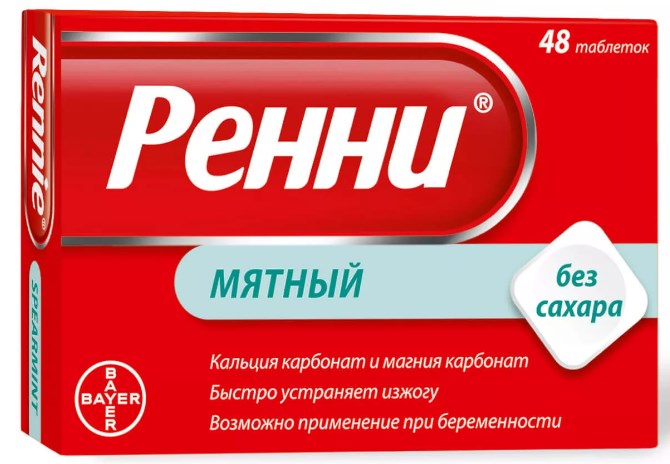
- is the safest drug for pregnant and lactating among antacids;
- can be given to children over 12 years old;
- pleasant taste (fruity or mint);
- acts quickly - the burning sensation recedes after 5-10 minutes;
- convenient packing - the plate is divided into parts at the seams.
- does not always cope with severe bouts of heartburn.
Vikair
The drug has a complex antacid-alginate action. The main active ingredients are bismuth subnitrate, magnesium carbonate, sodium bicarbonate. The magnesium compound reduces acidity, bismuth subnitrate forms a film on the mucous membrane, thereby protecting it from irritation by the acidic contents of the stomach. In addition to them, there are rhizomes of calamus marsh and alder buckthorn bark. Burning sensation recedes 30 minutes after application. A long-term therapeutic effect is possible with a course of treatment with taking 1-2 tablets 3 times a day after meals. Full course up to 2 months.
Packing cost of 10 tablets: from 35 rubles.
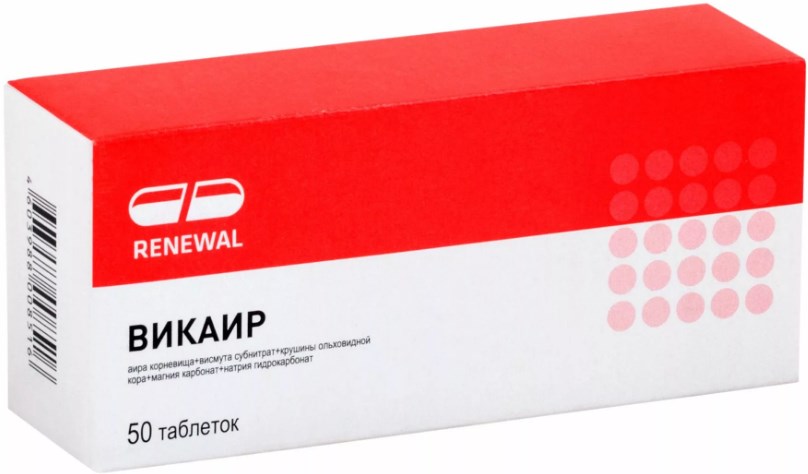
- tolerant taste;
- can be used as an express tool during periods of eating disorders;
- quickly copes with heartburn;
- cheap.
- should not be taken during pregnancy and breastfeeding;
- contraindicated in children under 18;
- can provoke loose stools.
Rutacid
The active ingredient is hydrotalcite, which contains a small amount of aluminum and magnesium. The layered structure of the active component allows you to gradually reduce acidity, releasing the required amount of aluminum and magnesium. The medication is actively prescribed for the treatment of gastritis, peptic ulcer disease, and concomitant reflux. It is used to relieve the unpleasant symptoms of heartburn after a hearty meal, drinking alcohol, in case of non-compliance with the diet, etc. It is taken after meals in the amount of 0.5-1 tablets. The effect is noticeable after 15-20 minutes. It has a full effect with the course application for 3-4 weeks. Available in chewable tablets.
Package cost (2 blisters of 10 tablets): from 165 rubles.
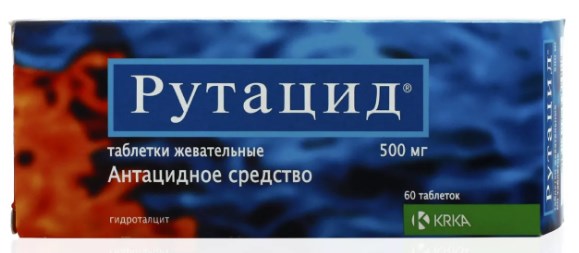
- convenient form of drug release;
- pleasant taste;
- it is not necessary to drink water, which is convenient when you are on the road;
- possible appointment for pregnant and lactating;
- can be prescribed to children over 6 years old;
- convenient packaging: the blister can be divided into parts at the seams.
- occasionally can provoke diarrhea, flatulence.
Maalox
It is a combined action antacid: it not only neutralizes acid, but also protects the internal epithelium of the stomach and esophagus from acidic contents. Contains magnesium oxide and aluminum oxide monohydrate. It is used to relieve the symptoms of GERD, gastritis. Available in the form of tablets and suspensions. The drug is taken according to a simple scheme: 1-2 tablets (1 tablespoon of suspension) after meals 3-4 times a day, as well as before bedtime. Full course of treatment up to 3 months. The first positive results are noticeable within half an hour after administration.
The cost of a bottle of suspension 250 ml: from 330 rubles, packaging (2 blisters of 10 tablets): from 240 rubles.
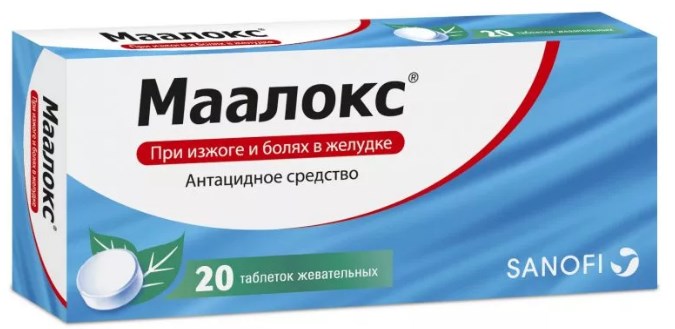
- 2 forms of release - suspension and chewable tablets;
- pleasant taste of both tablets and suspensions;
- the medicine is available both with and without sugar;
- long shelf life for tablet form;
- possible short-term treatment with this drug during pregnancy and breastfeeding;
- can be used as an express remedy for the relief of rare bouts of heartburn.
- rare cases of lack of efficiency.
Gaviscon
This drug is alginate-antacid, i.e. complex action. This is due to the active ingredients included in the composition. Calcium carbonate and sodium bicarbonate neutralize the action of hydrochloric acid, and sodium alginate, when interacting with gastric juice, forms a protective film on the walls of the organ. Recommended for GERD. Available in two forms - chewable tablets and suspension. The dosage regimen is the same as for other antacids - after meals and before bedtime. The tablet preparation is allowed to be given to children over 12 years old, suspension - after 6 years.
It is worth noting that Gaviscon Forte is also produced with a higher content of sodium alginate, which further protects the walls of the stomach from the effects of hydrochloric acid.
The cost of a package (24 tablets - 3 plates): from 240 rubles, a bottle of suspension 150 ml: from 260 rubles.
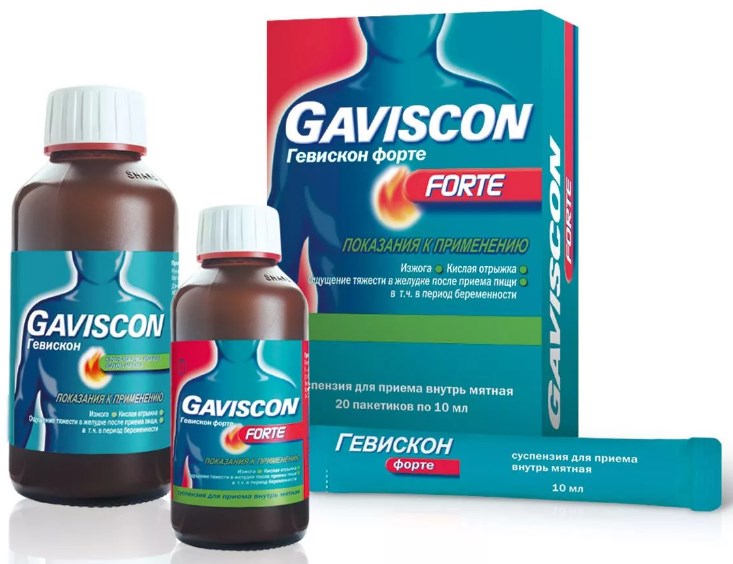
- can be taken during pregnancy;
- effective - relieves burning after 10-15 minutes;
- components are not absorbed into the bloodstream and act only within the digestive tract;
- Gaviscon Forte does not provoke the formation of gases and its action has a longer lasting effect.
- a sharp mint taste in the suspension;
- does not always provide relief for severe reflux;
- there is no measuring spoon for the suspension;
- may cause increased gassing.
It is important to remember that antacids do not treat the cause of reflux, but only relieve unpleasant symptoms.
Gastroprotectors
De-Nol
The active ingredient in this medication is bismuth tripotassium dicitrate. It, reacting with the acidic environment of the stomach, forms special compounds in the form of a film, which cover the damaged areas of the walls of the stomach. In addition to the protective function, bismuth dicitrate stimulates the growth of the epidermis at the sites of its damage. Thus, the drug relieves stomach pain characteristic of gastritis and ulcers. As for heartburn, he also copes with it. It is important to note that the drug is prescribed for the complex treatment of gastrointestinal diseases, and not only for relieving symptoms. Dosing regimen: 1-2 tablets 2-4 times a day half an hour before meals. The course of treatment is 4-8 weeks.
The cost of packing 56 tablets: from 475 rubles.
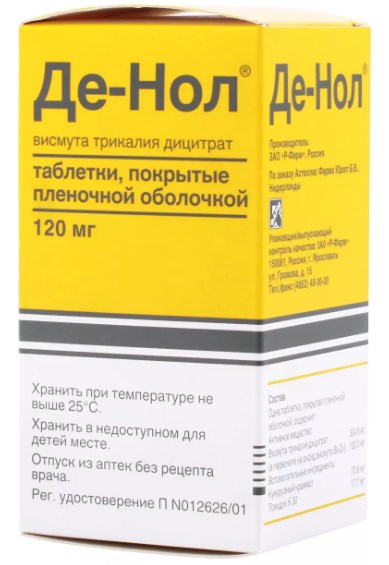
- is not absorbed into the blood and excreted from the body with feces;
- possible appointment to children over 6 years old;
- with complex treatment, copes with gastritis, peptic ulcer, irritable bowel syndrome.
- should not be taken by pregnant and lactating women;
- not used as an express remedy for quickly getting rid of burning and acidity;
- can cause constipation.
A more budgetary analogue of De-Nol is Escape. Its cost is from 270 rubles. for a package of 40 tablets.
Antisecretory drugs
Ranitidine
The drug belongs to the group of histamine H2 receptor blockers, i.e. inhibits the production of hydrochloric acid, reduces the amount of gastric juice. Most often prescribed for the treatment of ulcers, GERD, reflux esophagitis. 1-2 tablets are taken 2-3 times a day. It gives stable positive results after a course of administration lasting from 2 weeks.
Packing cost (2 plates of 10 tablets): from 20 rubles.
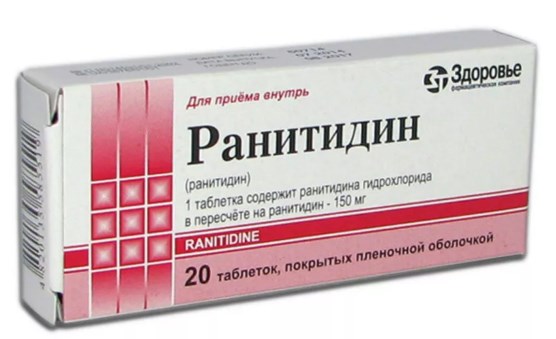
- the use of the drug is not tied to food intake;
- quickly and effectively copes with heartburn and stomach pain;
- long-term effect - a single dose gives up to 12 hours of reduced production of hydrochloric acid;
- cheap.
- not suitable for single use;
- contraindicated in pregnancy and lactation;
- appointment to children is possible only after 14 years.
Omeprazole
The tool belongs to the proton pump inhibitors. Its action is to reduce the secretion of gastric juice, reduce its volume. Due to this, acidity decreases, pain and burning sensation in the stomach disappears. Release form - capsules. The regimen is simple - 1-2 capsules in the morning before meals. The course of treatment is up to 4 weeks.
Packing cost (30 capsules): from 30 rubles.
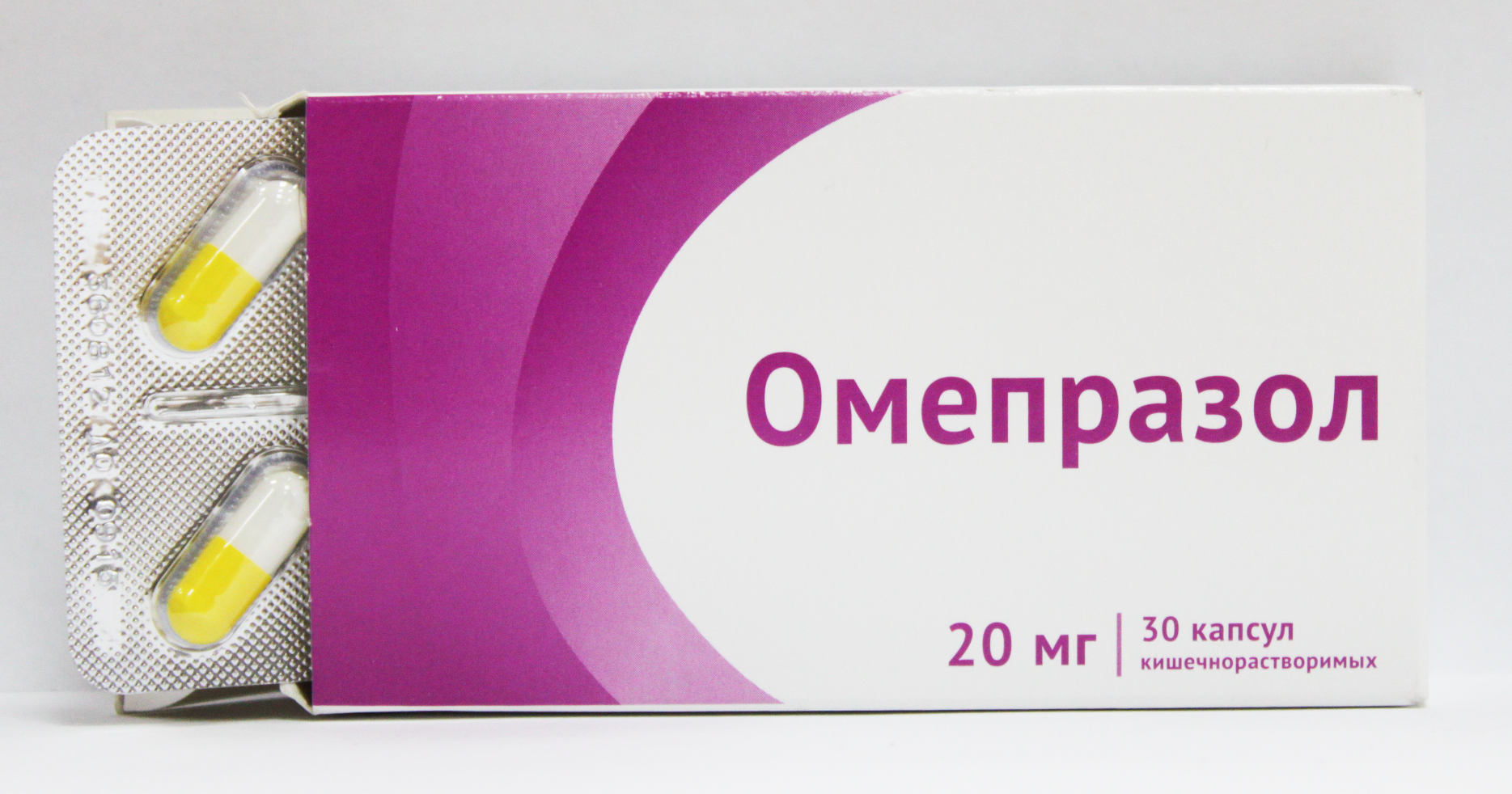
- it is prescribed for children for the treatment of reflux esophagitis, GERD, but under strict supervision by the attending physician;
- possible use during pregnancy and lactation;
- effective for heartburn, one capsule is enough for the whole day;
- cheap.
- a large number of possible side effects.
Nolpaza
A drug in which pantoprazole acts as an active ingredient. It belongs to the group of proton pump inhibitors - it blocks the production of hydrochloric acid, and also has an antimicrobial effect. Release form - tablets. It is taken 1 tablet per day half an hour before breakfast (on the recommendation of a doctor, 2 doses may be prescribed - before breakfast and before lunch). The course of treatment is no more than 8 weeks.
Package cost (56 tablets): from 420 rubles.
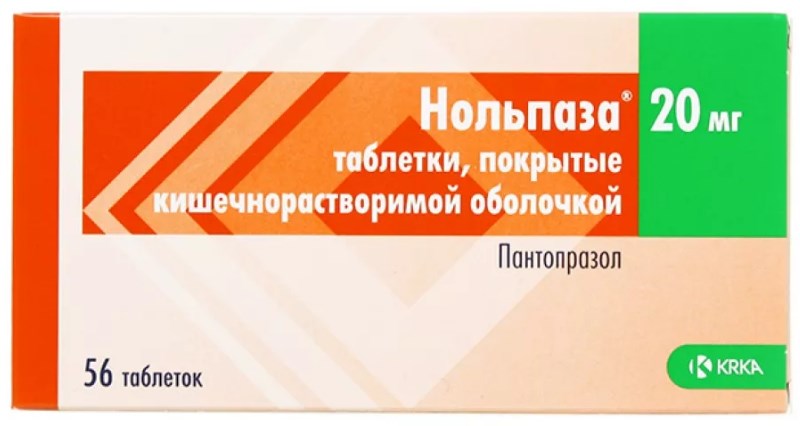
- copes with many gastrointestinal problems;
- effectively relieves heartburn;
- one application lasts up to 12 hours;
- stomach pains go away after 2-3 days, and acidity returns to normal within a week of use;
- there is no withdrawal syndrome.
- contraindicated in pregnancy and lactation;
- a large number of "side effects";
- isolated cases of unsuccessful intake of this drug.
Remember, gastroprotective and antisecretory agents must be prescribed by a specialist gastroenterologist. Self-medication is excluded.
Summing up the results of our rating, I would like to highlight the following as conclusions:
- in order to avoid the appearance of reflux, it is necessary to follow the diet, minimize the use of spicy, fried and fatty foods, alcohol, as much as possible, and also try to avoid stress, which also negatively affects the health of the digestive tract. If unpleasant symptoms do appear, first of all, adjust your diet, exclude caffeinated drinks, alcohol from the diet, stick to a diet;
- most often, heartburn is a sign of any gastrointestinal disease (albeit just beginning, but still);
- if a burning sensation under the spoon appears regularly, it is worth contacting a gastroenterologist to identify the true cause of its appearance;
- do not self-medicate and do not prescribe drugs for yourself, because each of them, even the most harmless at first glance, has contraindications.
new entries
Categories
Useful
Popular articles
-

Top rating of the best and inexpensive scooters up to 50 cubic meters in 2020
Views: 97661 -

Rating of the best materials for noise insulation for an apartment in 2020
Views: 95022 -

Rating of cheap analogues of expensive drugs for flu and colds for 2020
Views: 91751 -

The best men's running shoes in 2020
Views: 87681 -

Top ranking of the best smartwatches 2020 - price-quality
Views: 85091 -

Best Complex Vitamins in 2020
Views: 84801 -

The best dye for gray hair - 2020 top ranking
Views: 82406 -

Rating of the best wood paints for interior use in 2020
Views: 77202 -

Ranking of the best action cameras from China in 2020
Views: 75269 -

Rating of the best spinning reels in 2020
Views: 74827 -

The most effective calcium supplements for adults and children in 2020
Views: 72463 -

Top rating of the best means for male potency in 2020 with a description
Views: 68296









